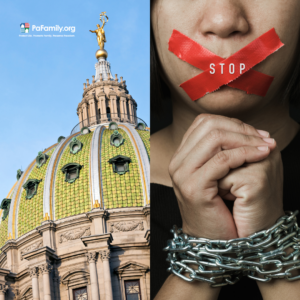SB 851: Providing a “safe harbor” for children caught in sex trafficking
Earlier this week, state Senator Stewart Greenleaf (R) and Daylin Leach (D) announced at a press conference that they are introducing a “Safe Harbor” bill (Senate Bill 851), legislation that would assist minors forced into human trafficking. The senators were joined by several speakers from various anti-trafficking organizations such as Shared Hope International and The Salvation Army.
Child victims of sex trafficking are often forced, persuaded, and compelled into providing commercial sex. Children that are caught in sex slavery are compelled to engage in illegal activities such as prostitution and the selling of illegal drugs. These children can be treated as criminals and prosecuted for their participation of illegal activities, despite being exploited and forced into them.
Safe Harbor laws allow for legal protection against children caught in sex trafficking. Under this new law, a child is not criminally accountable or subject to any juvenile delinquency proceeding for prostitution or other non-violent offences, because these offenses were committed as a direct result of the child being a victim of human trafficking.
The Safe Harbor law would ensure that children caught in sex slavery would be protected under the law and treated as victims and not as criminals. It would also provide treatment and care for victims through child welfare services. This law provides a better incentive for children to report, if possible, that they have been sex trafficked without the fear of being prosecuted.
If passed, Pennsylvania will join a team of 15 other states who have already passed Safe Harbor legislation. Enacting a Safe Harbor is a solid step forward in the march to help end human trafficking in Pennsylvania.
HB 262: Shining a light on sex trafficking
To add, another bill that needs your support to combat sex trafficking is House Bill 262.
We now know for sure what has long been suspected: “adult businesses” such as strip clubs are implicated in sex trafficking—the buying, selling, and transporting of human beings in a form of modern slavery. HB 262 responds to this fact with new regulations on these businesses designed to protect vulnerable women and minors. HB 262 already has a bipartisan collection of 80 co-sponsors in the House.
This is a real opportunity to bring together a bipartisan coalition to get serious about sex trafficking.
Contact your State Representative in support of Hb 262 – click here to email.





We need to do this now!!!